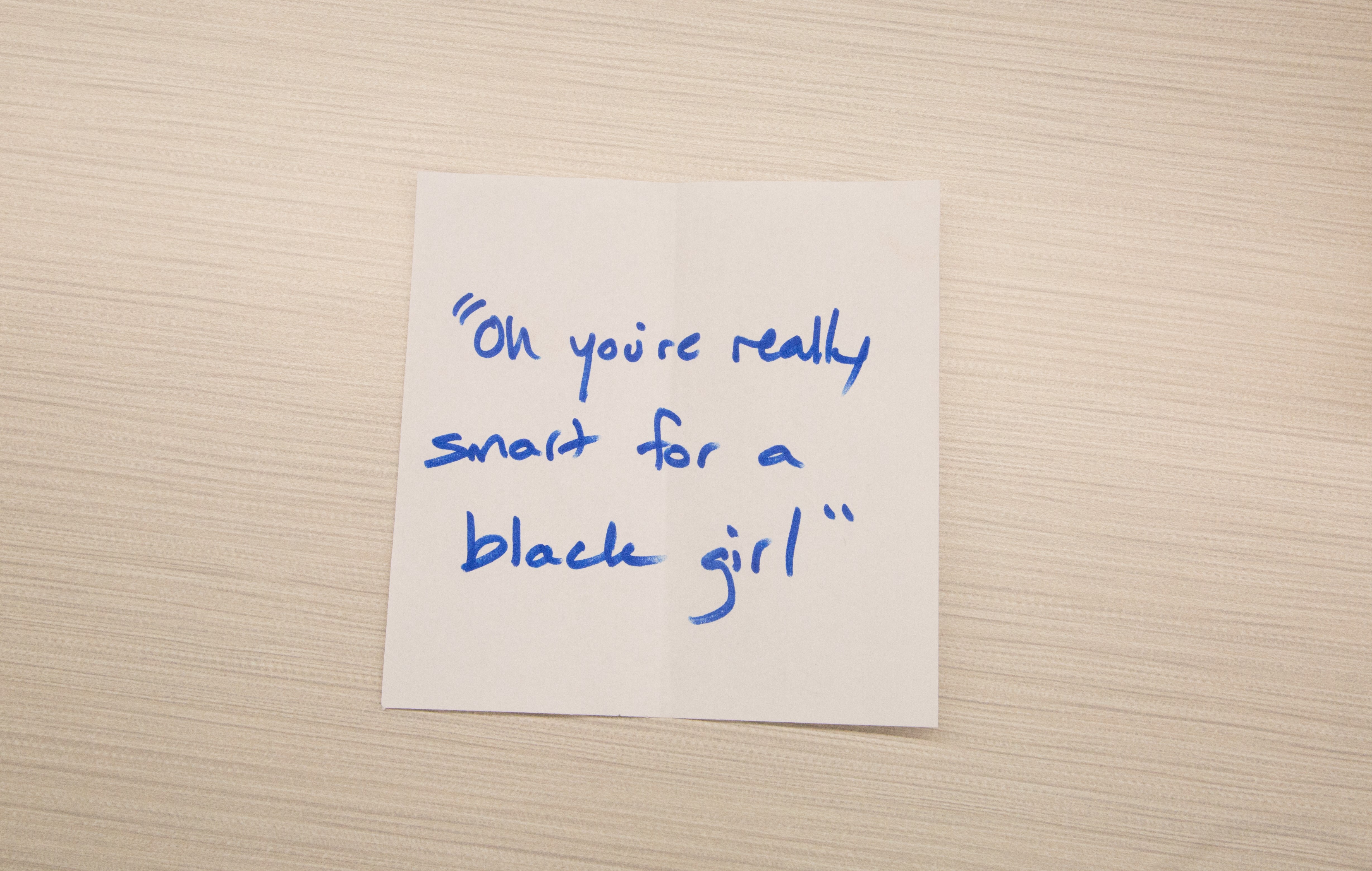Microaggressions: Subtle, Pervasive, Harmful
As rapper and songwriter Kanye West stated in “Never Let Me Down:” “racism’s still alive, they just be concealin’ it.” The subtle, yet insidious, nature of “concealed” forms of discrimination has garnered increasing attention in popular media. Recent films and television shows such as “Get Out” and “Dear White People,” have showcased the occurrence and effects of microaggressions. Despite intermittent attention in news outlets, this pervasive form of discrimination is often misunderstood and criticized.
Microaggressions are verbal or nonverbal denigrating messages that can result in a negative emotional response in certain individuals because of their group membership. This can include people of color, women, LGBTQ people, people with disabilities, religious minorities and any person who is identified as an “other” in a group. The reaction is often misconstrued as individuals being overly sensitive. Microaggressions are a reflection of deeper structural norms that discriminate against marginalized groups.
 One of the challenges in addressing microaggressions is that the discriminatory effects of a microaggression are not universally experienced. For example, two black men, each described as “articulate,” may have different responses to this description. Whereas one may thrive on what he considers positive feedback, another may note a hidden message suggesting that black men are not usually intelligent and well-spoken.
One of the challenges in addressing microaggressions is that the discriminatory effects of a microaggression are not universally experienced. For example, two black men, each described as “articulate,” may have different responses to this description. Whereas one may thrive on what he considers positive feedback, another may note a hidden message suggesting that black men are not usually intelligent and well-spoken.
Other examples include asking a person “how did you get your job?,” implying that they are not qualified and got the job because of affirmative action or a quota program; or a teacher not calling on students of color, implying their contributions are less valuable.
The perception of discrimination by the marginalized individual is a key defining feature, and the exclusion and invalidation of these experiences has consequences. The dismissal of microaggressions as just individual sensitivity worsens the experience of discrimination. The scientific literature has demonstrated significant negative physical and mental health effects from perceived discrimination. The physical effects include increased risk of obesity, diabetes and high blood pressure. The mental health effects include increased risk of depression, anxiety and substance use.
What can you do to overcome microaggressions?
- Recognize situations in which a microaggression has occurred and play an active role. If a friend uses “gay” as synonym for “stupid,” resist the initial inclination to be passive. Instead, provide feedback and educate your friend. By doing so, you are providing a voice to a marginalized group.
- Find peers and social supports that validate your experiences and provide additional perspective.
- Affirm the value and contributions of the individuals around you. These microaffirmations build self-esteem and combat the negative effects of microaggressions.
Microaggressions may be pervasive and toxic, but you can play a role in combatting the negative effects.
By Jai Gandhi, M.D.
Assistant Professor, University of Texas Southwestern Medical Center
Psychiatrist, North Texas VA Healthcare System
References
- Sue, D., et.al. 2007. Racial Microaggressions in Everyday Life. American Psychologist, 62(4): 271–286
- American Psychiatric Association. Education Activity: Impact of Microaggression on Mental Health Outcomes. 2018.
